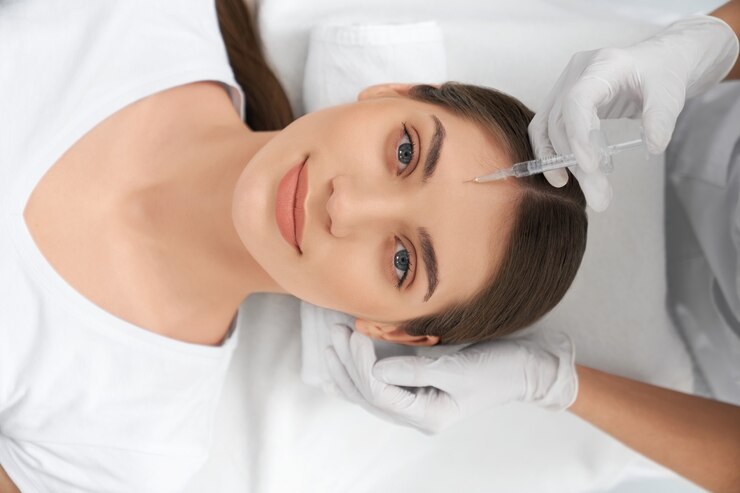Botox injections to remove facial wrinkles appear to be available almost everywhere. However, it is critical to understand what Botox can and, more significantly, cannot accomplish. If you were a carpenter with only a hammer in your tool belt, everything would appear like a nail. The same holds true with Botox. Just because a clinic or spa provides botox does not guarantee it is the best treatment for all of your facial wrinkles.
Temporomandibular joint disorder (TMD) can be a painful and challenging condition that affects the jaw joint and muscles. From discomfort to limited jaw movement, managing TMJ is crucial for improving one’s quality of life. In this blog, we’ll explore eight unique ways to help manage temporomandibular joint disorder.
What Does Botox Do To Your Face?
Botox is an FDA-approved therapy that relaxes specific muscles in the skin to make it appear younger and healthier, mostly on the face. Aside from cosmetic benefits, there are other advantages to receiving this therapy in Nashville. Continue reading to learn more about the cosmetic benefits of Botox injections and their various medicinal applications.
What Are The Benefits of Botox Injections?
Although botox was originally developed to smooth out tiny lines and wrinkles that form in the facial area as a result of aging, doctors have discovered that it has a wide range of other medical applications and benefits.
1. Mindful Relaxation Techniques
Stress is a common trigger for TMD symptoms. Incorporating mindful relaxation techniques such as deep breathing, meditation, or yoga can help reduce stress levels. This not only relaxes the mind but also eases tension in the jaw muscles, promoting overall well-being.
2. Dietary Adjustments
Certain foods can aggravate TMD symptoms. Opt for a soft diet with easy-to-chew foods, and avoid excessive chewing, especially gum. Integrate anti-inflammatory foods like fruits, vegetables, and fatty fish rich in omega-3 fatty acids, which can help alleviate inflammation and promote joint health.
3. Heat and Cold Therapy
Applying heat or cold to the affected jaw area can provide relief from TMD symptoms. Use a warm compress to relax tense muscles and reduce pain, or apply a cold pack to numb the area and minimize inflammation. Using heat and cold therapy alternately can be especially beneficial.
4. Jaw Exercises
Gentle jaw exercises can improve flexibility and strengthen the muscles surrounding the temporomandibular joint. Your healthcare provider or physical therapist can guide you through specific exercises tailored to your condition, helping you regain control over your jaw movements.
5. Proper Posture Awareness
Maintaining good posture is essential for managing TMD. Be conscious of your head and neck alignment, both during daily activities and while sleeping. Correcting posture habits can alleviate strain on the jaw joint and prevent the exacerbation of TMD symptoms.
6. Customized Mouthguards
Dentists near you often recommend custom-made oral appliances, such as mouthguards or splints, to help manage TMD. These devices can prevent teeth grinding, reduce jaw clenching, and provide support to the jaw joint, promoting proper alignment and minimizing discomfort.
7. Physical Therapy
Working with a physical therapist who specializes in TMD can be highly beneficial. They can create a personalized exercise plan, offer manual therapy, and provide guidance on lifestyle adjustments to address the root causes of TMD and alleviate its symptoms.
8. Acupuncture and Massage Therapy
Alternative therapies like acupuncture and massage can complement traditional TMD management. Acupuncture may help reduce pain and improve joint function, while massage therapy can relax tense muscles, promote circulation, and ease discomfort.
Conclusion
Living with temporomandibular joint disorder requires a multifaceted approach to address both the physical and emotional aspects of the condition. By incorporating these eight unique strategies into your daily routine, you can take proactive steps towards managing TMD and improving your overall quality of life. Consult with Inglewood Family Dental for personalized advice and botox treatment Plans tailored to your specific needs.


